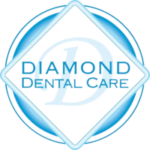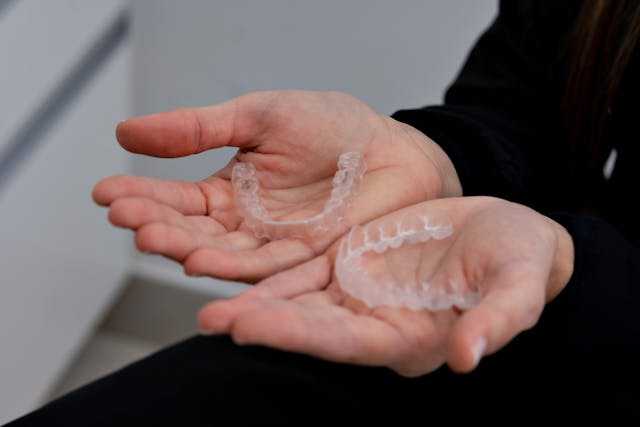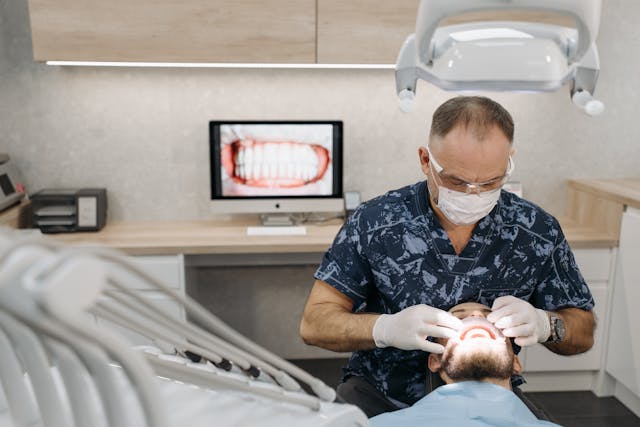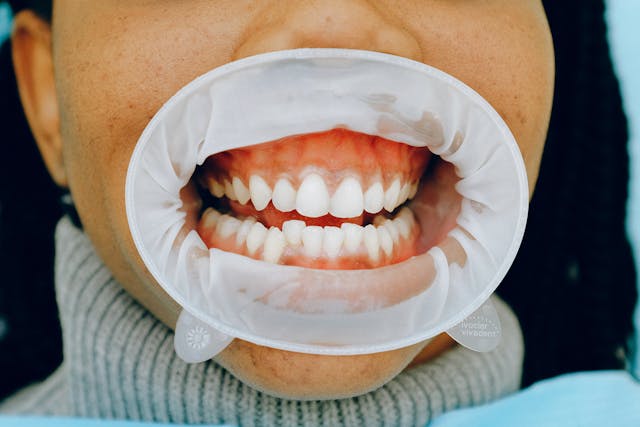Introduction
Let’s face it—being a parent means juggling a thousand responsibilities. Dental visits might not be at the top of your to-do list when your little one is still teething, but they absolutely should be. Starting early with dental care sets the stage for a lifetime of healthy smiles. Think of it like planting a tree—the earlier, the better.
Call us at (909) 860-7579 to book your visit. You can also connect with us on Facebook or leave a review on Yelp. We look forward to seeing you!
When Should a Child First See a Pediatric Dentist?
The ADA Recommendation
According to the American Dental Association, your child should visit the pediatric dentist by their first birthday or within six months after their first tooth appears. It may sound early, but this first checkup is essential for establishing a dental home.
Why the First Birthday Is a Milestone
The first visit isn’t about drilling or filling—it’s about education, prevention, and comfort. It allows the pediatric dentist to detect early signs of decay, discuss oral hygiene practices, and answer your burning questions about teething, thumb sucking, and more.
Benefits of Early Dental Visits
Prevention Is Better Than Cure
Early dental visits are the frontline defense against cavities, gum issues, and more. Catching problems early prevents them from spiraling into more serious, costly issues down the road.
Identifying Problems Early
Children can experience dental issues even before they can speak properly. Regular visits help spot:
- Cavities
- Misaligned bites
- Enamel defects
Familiarity Reduces Fear
Let’s be honest—pediatric dentists can seem scary to kids (and adults too!). But early, positive dental experiences help eliminate fear. Your child learns that the pediatric dentist is a friend, not a threat.
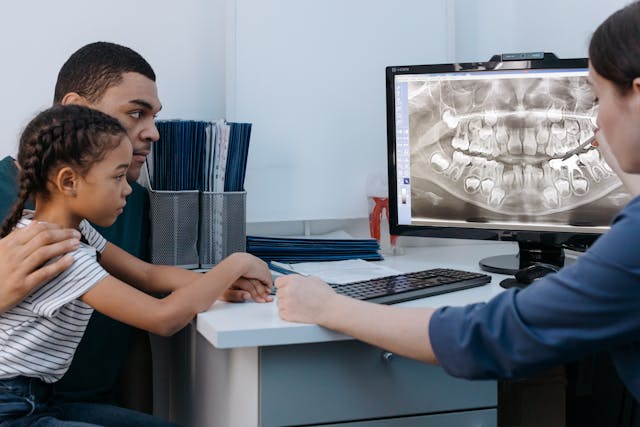
Common Pediatric Dental Issues
Baby Bottle Tooth Decay
Also known as early childhood caries, this occurs when sweetened liquids cling to an infant’s teeth for a long time. It’s common but preventable with early guidance from your pediatric dentist.
Teething and Gum Care
Teething can be tough. Pediatric pediatric dentists offer tips for soothing sore gums and ensuring your baby’s new teeth erupt without issues.
Thumb Sucking and Its Effects
Thumb sucking is natural, but if it continues past the toddler years, it could lead to bite issues and misaligned teeth. Your pediatric dentist can help you manage or break the habit gently.
What Happens During a Child’s First Dental Visit?
What Parents Can Expect
The first visit is simple:
- Oral exam of baby’s mouth
- Discussion on brushing, feeding, and habits
- Risk assessment for cavities
- Opportunity to ask questions
Making the Child Comfortable
A good pediatric dentist uses fun, engaging language, gentle care, and maybe even cartoons on the ceiling to help your child feel at ease.
How to Prepare Your Child for Their First Dental Appointment
Set Positive Expectations
Avoid using phrases like “it won’t hurt.” Instead, say things like, “The pediatric dentist is going to count your teeth!”
Use Storybooks or Pretend Play
Read picture books about dental visits or play “pediatric dentist” at home. These familiar scenarios make the real visit less intimidating.
Avoid Scary Language
Words like “shot,” “drill,” or “pain” should be banned. Keep your tone upbeat and reassuring.
The Role of Parents in Pediatric Oral Health
Brushing With Your Child
Make brushing fun with:
- A favorite toothbrush
- Music or brushing apps
- Brushing together
Monitoring Diet and Sugar Intake
Limit juice, sticky snacks, and candy. Even “healthy” snacks like raisins can be tough on baby teeth.
Making Dental Care Fun
Turn oral care into a game, give rewards (non-sugary, of course!), or create a brushing chart with stickers.

How Often Should Children Visit the Dentist?
Regular Checkups and Cleanings
Every six months is the gold standard. These visits help reinforce healthy habits and allow for professional cleaning to remove plaque build-up.
Importance of Fluoride Treatments and Sealants
Fluoride helps strengthen enamel, while sealants protect chewing surfaces from decay. Ask your pediatric dentist if your child is a candidate.
Pediatric Dental Myths Debunked
“They’re Just Baby Teeth”
Yes, they fall out—but baby teeth are space holders for adult teeth. Losing them too early can cause crowding and alignment issues later.
“Kids Don’t Need the Dentist Unless Something Hurts”
By the time there’s pain, the issue might be serious. Regular visits prevent pain and costly treatments.
Choosing the Right Pediatric Dentist
What to Look For
Look for a dentist who:
- Specializes in pediatrics
- Has a kid-friendly office
- Encourages parental involvement
Questions to Ask
- How do you handle anxious kids?
- Do you use sedation if needed?
- What kind of dental education do you provide parents?
Creating a Lifetime of Healthy Smiles
Early experiences shape attitudes. A child who learns that the dentist is fun and helpful will carry that comfort into adulthood. And let’s be real—less dental anxiety means better oral health for life.
Why Diamond Dental Care is the Perfect Choice
Experienced Pediatric Dental Team
At Diamond Dental Care, your child is in expert hands. The team has years of experience treating kids with patience, kindness, and gentle techniques.
Friendly Environment and Advanced Care
Our office is designed to be welcoming and cheerful, making kids feel safe. We use modern equipment and the latest techniques to ensure your child gets top-tier care.
Convenient Location in Diamond Bar, CA
We’re conveniently located at:
📍303 South Diamond Bar Blvd, Ste 2C, Diamond Bar, CA 91765
📞Call us at (909) 860-7579 to schedule your child’s visit today!
Conclusion
Starting dental visits early might seem like a small step, but it leads to a giant leap toward lifelong health and confidence. A happy, cavity-free smile is one of the best gifts you can give your child—and the best part? You don’t have to do it alone. With the support of a caring team like Diamond Dental Care, you’re setting your child up for success.
Call us at (909) 860-7579 to book your visit. You can also connect with us on Facebook or leave a review on Yelp. We look forward to seeing you!
FAQs
1. How do I know if my child has a cavity?
Look for signs like sensitivity, brown or black spots, and complaints about pain while eating. A dentist can confirm with a simple exam.
2. Can pacifiers harm my child’s teeth?
Prolonged pacifier use can lead to bite problems. Most dentists recommend stopping by age 2–3.
3. Is fluoride safe for young children?
Yes, when used properly. Your dentist will guide you on the right fluoride toothpaste and amount based on your child’s age.
4. What if my child is scared of the dentist?
Choose a kid-friendly dental office like Diamond Dental Care. Preparing your child with stories and positive talk also helps a lot.
5. When should my child start brushing with toothpaste?
As soon as the first tooth appears! Use a smear of fluoride toothpaste (about the size of a grain of rice).
